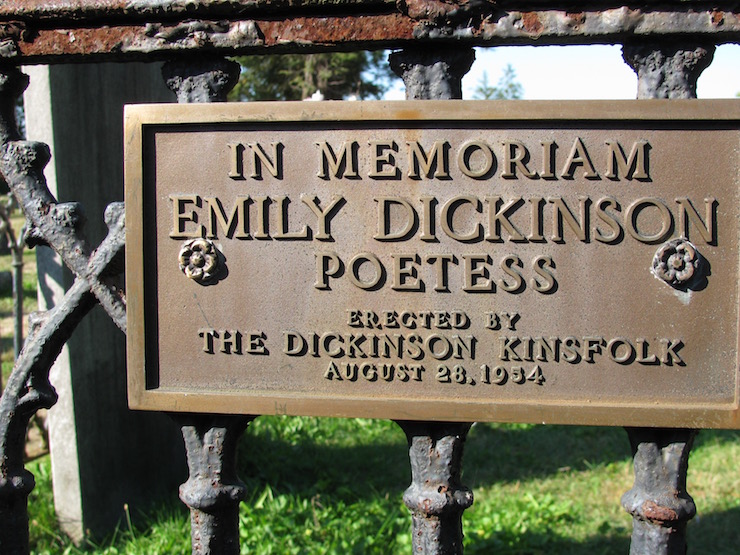< Return to Emily Dickinson Poems
XIX. To Know Just How He Suffered
To know just how he suffered would be dear;
To know if any human eyes were near
To whom he could intrust his wavering gaze,
Until it settled firm on Paradise.
To know if he was patient, part content,
Was dying as he thought, or different;
Was it a pleasant day to die,
And did the sunshine face his way?
What was his furthest mind, of home, or God,
Or what the distant say
At news that he ceased human nature
On such a day?
And wishes, had he any?
Just his sigh, accented,
Had been legible to me.
And was he confident until
Ill fluttered out in everlasting well?
And if he spoke, what name was best,
What first,
What one broke off with
At the drowsiest?
Was he afraid, or tranquil?
Might he know
How conscious consciousness could grow,
Till love that was, and love too blest to be,
Meet — and the junction be Eternity?
-Emily Dickinson
Enjoy Artistic Representations of “To Know Just How He Suffered” by Emily Dickinson
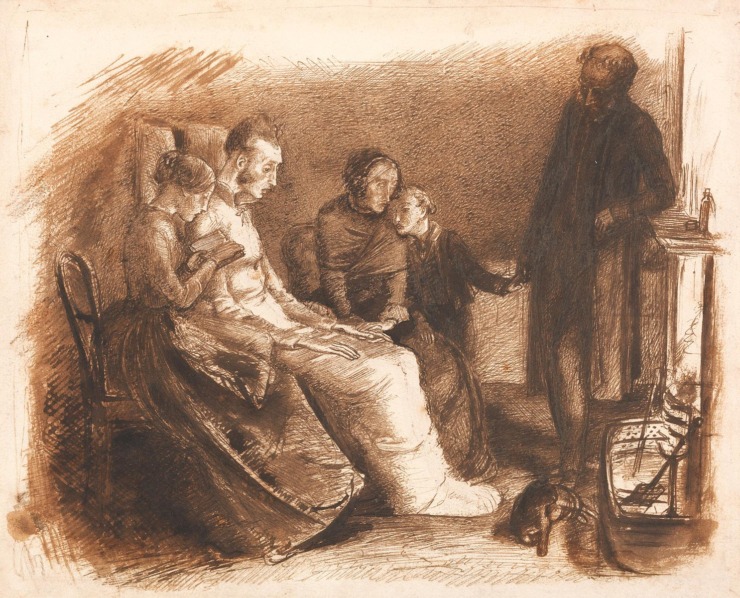
The Dying Man by John Everett Millais, ca 1853.
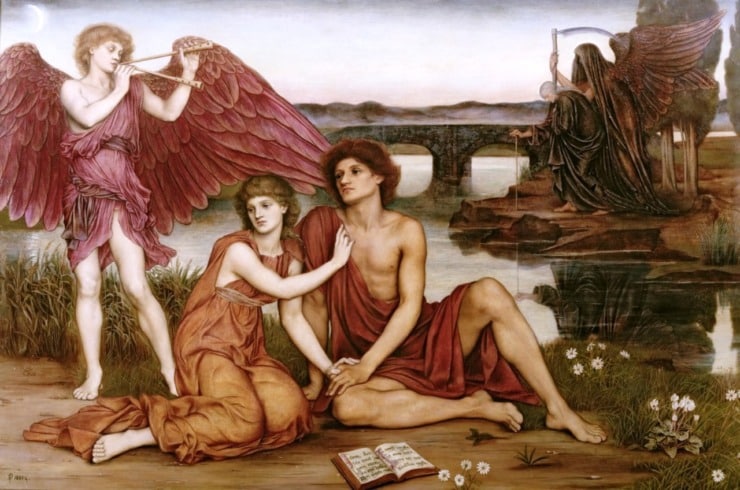
Love’s Passing by Evelyn De Morgan, ca 1883-1884.
Listen to this Reading of “To Know Just How He Suffered”
Listen to these Musical Interpretations of “To Know Just How He Suffered” by Emily Dickinson
About Emily Dickinson
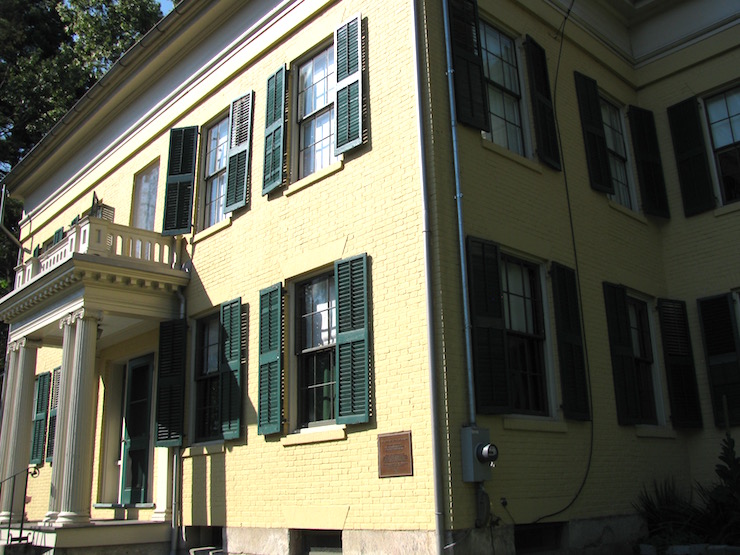
Emily Dickinson estate in Amherst Massachusetts
Emily Dickinson was born in Amherst, MA, in 1830, the daughter of state and federal politician Edward Dickinson. A prolific poet, Dickinson was known to draft poems on the backs of envelopes and chocolate wrappers. Nearly 1800 of her poems were discovered by her family following her death, many in 40 handbound volumes she had sewn together, written in her own hand with her famously unorthodox punctuation.
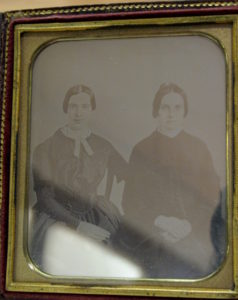
Emily Dickinson & Susan Gilbert
The enigmatic poet is remembered as a recluse, rarely leaving the Dickinson estate. While she did receive callers at her home, conversations were often held from opposite sides of a closed door.
She lived with her sister, Lavinia, while her brother Austin and his wife, Susan Gilbert, lived down a narrow path on the property. Her writing reflects profound loneliness as well as a deep capacity for love and affection, much of which is believed to have been shared with Gilbert.
Her first collection of poems, Poems by Emily Dickinson, was published four years after her death, with Poems: Second Series and Poems: Third Series following in the next several years.
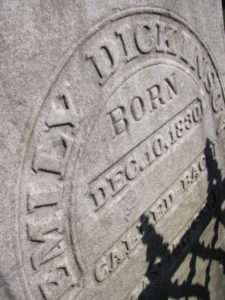
“Called Back”
Like Walt Whitman (who she reportedly never read), she is considered one of the most influential poets in the emergence of a distinctly American poetic voice.
She was born on December 10, 1830, and today visitors to Emily Dickinson’s grave can witness a lasting image of her perspective on life. The etching on her stone marking the date of her death—May 15, 1886—bears the words “Called Back.”
< Return to Emily Dickinson Poems
Get Every Day Poems, free…
